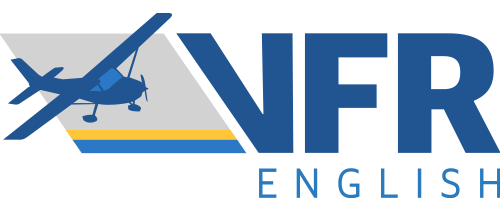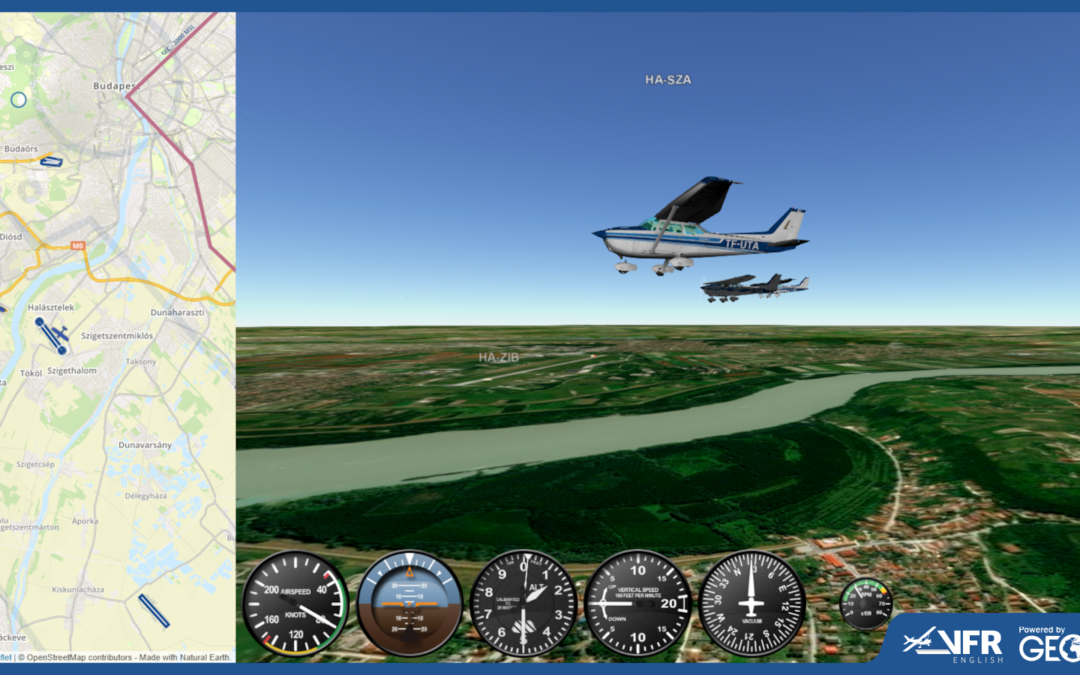We became grounded in March 2020
The idea of VFR English was born on a rainy day in April 2020, as the emerging pandemic situation grounded us for weeks. I have been giving the PPL theory course at the local flight club near Budapest, Hungary, wondering how virtual flight lessons could be of my students’ benefit during these difficult times. I was presenting them important aspects of flying – communication, landing techniques, situational awareness – via a simulator and this made the lessons interactive and entertaining.
Being friends and flying in the same club with David, we also talked about his job as a pseudo pilot at Hungarocontrol, the Hungarian agency responsible for training and employing all air traffic controllers, flight information service providers and many other services related to regional aviation. He participated in the programme as one of the virtual pilots using simulators and flying their aircraft and communicating with real controllers.
We realized the fact that proficient communication in the air is not self-evident, with many students being frustrated when having to press the button and transmit. And as we both loved flying abroad and discovering new airfields, we decided to bring fun in the game and take aviation communication training to the next level.
Flying virtually is great fun
Why not go flying virtually to an uncontrolled airfield and let the students pick up basic radiotelephony skills? Then, how about planning a cross-country flight in controlled airspace, landing at a major airport with all the necessary preparations beforehand? And, last but not least, fill a virtual flight plan, fly abroad, learn how to deal with border crossings and even solve emergency situations?
We have been looking for the right simulator for a long time and partnered with Geo-FS, which is the perfect platform for doing the course. It is easy to master landings in an hour’s time but realistic enough to create the workload you have in a real aircraft. And this is the point: you can’t master radiotelephony in a classroom. You need to put yourself in real situations and solve them. That creates good airmanship.
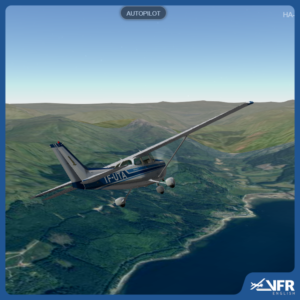
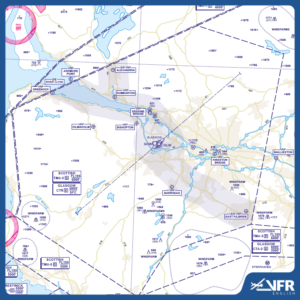
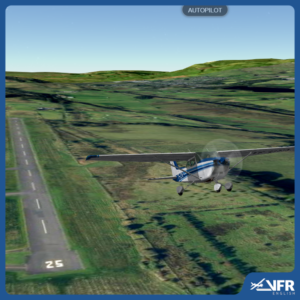
Courses with numerous students carried out in the last 12 months have proven our method. The students were filled with excitement before the simulator sessions just as the beginner pilot before the first solo. Sometimes they got nervous but we helped them make and learn from mistakes.
The goal: Train better pilots and enhance flight safety
By providing the VFR English course, we have these goals in our minds:
- Help develop the necessary radiotelephony skills for aviation students
- Enhance flight safety in General Aviation – communication is one of the cornerstones here
- Make learning a fun thing that creates excitement
- Develop situational awareness and decision making
- Help pilots remain sharp in the COVID-19-times
This mission is indeed not easy to achieve. We have planned, built a website, worked together with user experience experts, conducted user interviews and provided multiple courses already. Then back to planning mode and the cycle runs again.
We have great fun discovering new places in the world which are suitable for flying the course missions – for example Scotland, which is the location of the current sessions in September and October.
If you are interested in training towards your ICAO exam, improving your radiotelephony skills and having fun with the simulator in an inspiring community, enroll in one of the VFR English sessions. You can also drop us a line or make a call, we are happy to discuss aviation related topics with you. Oh yes, and feel free to register to our newsletter!
Take me to the courses